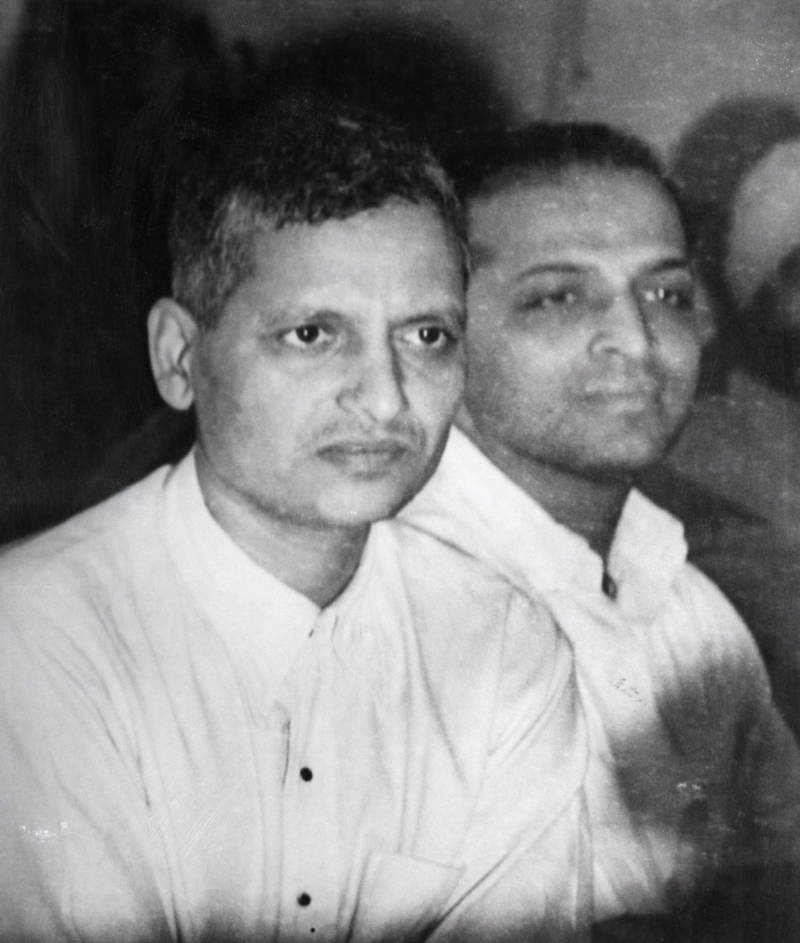Murder most foul
Ravi Shanker Kapoor | May 21, 2019 11:39 pm

Prime Minister Narendra Modi’s reprimand to the Bharatiya Janata Party’s Sadhvi Pragya Thakur, though late, should help drill some sense and decency in the minds of saffron hotheads. He was reacting to the Sadhvi’s glorification of Nathuram Godse, Mahatma Gandhi’s assassin. It is comforting to see that his condemnation was unambiguous and unequivocal, without any ifs and buts. The Prime Minister said, “I will never be able to forgive Pragya Thakur for insulting Mahatma Gandhi.” It was Prime Minister-like, for the exaltation of a murderer is simply loathsome in a civilized society; it had to be denounced categorically, which Modi did.
It should have been done earlier, though. In fact, Godse’s glorification shouldn’t have been allowed to be mainstreamed in the first place. In every society, there are fringe elements, which can be tolerated so long as they just peddle their outlandish theories and don’t hurt others. There are white supremacists in the US, a flat earth society in the UK.
The problem arises when they tend to join the mainstream. So, when Donald Trump announced his bid for presidency and the Ku Klux Klan supported him, his son, Eric Trump, unequivocally condemned the white racist group. About former KKK leader David Duke, he said, “The guy [Duke] does deserve a bullet. I mean, these aren’t good people. These are horrible people.”
Unfortunately, this didn’t happen in the case of Godse’s admirers. For too long, the attitude of the saffron dispensation toward them was that of benign neglect. The denouement: cringe-worthy remarks by Sadhvi Pragya and others. Things came to such a pass that the Prime Minister himself, along with BJP president Amit Shah, had to come out strongly against the despicable remarks.
It is a pity that what should have been an axiomatic truth in a civilized society has to be argued today. That truth is: civilized life is predicated upon a system in which no person should be punished, much less killed, without the due process of law. Godse did just that and, therefore, he should be despised a murderer and not hailed as a hero or patriot.
Gopal Godse, Nathuran’s brother and a co-conspirator who served a prison sentence, reprinted Nathuran’s will in an annexure to his book. In it, Nathuram wrote, “The accumulating provocation of thirty-two years, culminating in his [Gandhi’s] last pro-Muslim fast, at last goaded me to the conclusion that the existence of Gandhi should be brought to an end immediately.”
But many people thought that Gandhi was pro-Muslim; they didn’t gun him down. If Godse was so opposed to Gandhi’s policies, he should have campaigned against him peacefully and tried to convince the Indians that his policies were bad. After all, this is how Gandhi fought against the mighty British Empire—and won.
Godse was of the view that Gandhi helped create Pakistan: “When top leaders of Congress, with the consent of Gandhi, divided and tore the country—which we consider a deity of worship—my mind was filled with direful anger. I bear no ill will towards anyone individually but I do say that I had no respect for the present government owing to their policy which was unfairly favorable towards the Muslims. But at the same time, I could clearly see that the policy was entirely due to the presence of Gandhi.”
To be sure, Gandhi didn’t create or help create Pakistan; Jinnah and the Muslim League did that. But that is beside the point; what is important is that even if that were true, even if many of Gandhi’s ideas and ideals were reactionary and dangerous (as they indeed were), it didn’t give Godse the right to kill him. If the killing of a person is allowed, or even tolerated, because some people find his or her views unpalatable—or, for that matter, conduct deceitful—no politician in our country would be safe.
Saffron leaders and activists should learn a lesson from senior BJP leader Subramanian Swamy, himself an ardent Hindu nationalist, rather than from Godse. When Swamy found former Tamil Nadu chief minister J. Jayalalitha corrupt, he filed a case against her way back in the mid-1990s. It led to her conviction almost two decades later. It called for immense assiduity, courage, and patience on his part to see her go behind bars, but then there are no short cuts to success, especially when somebody wants to make the country a better place.
Come to think about the enormity of the murder of Gandhi. Quite apart from the fact that he was an apostle of peace, he was also a man who could have held any office he wanted to—and didn’t. In the history of mankind, there are not even a dozen examples of persons who could have but didn’t enjoy power. Something—a lot actually—has gone wrong in our public discourse that the murderer of such a man is lionized by important men and women.






























